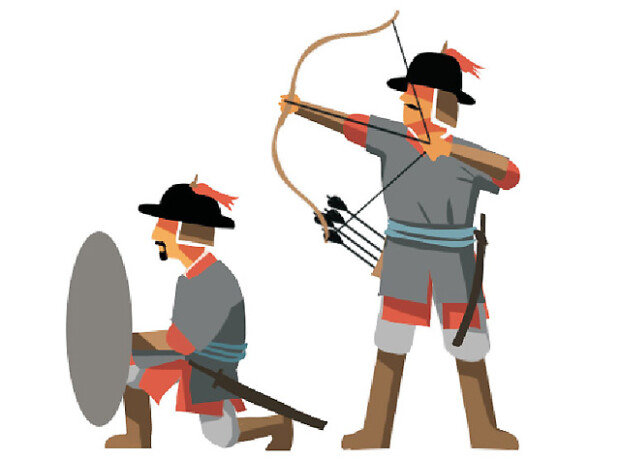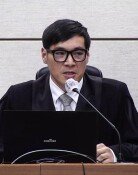Jeong Do-jeong’s mistakes
Jeong Do-jeong’s mistakes
Posted September. 10, 2019 07:40,
Updated September. 10, 2019 07:40

Jeong Do-jeon, a founding contributor to Joseon Dynasty, compiled a book on battlefield formations in 1398. Here a tactical concept was born that puts the order of defense before attack. A shield unit is deployed on the outside, with three layers of foot soldiers, archers and mounted troops back it up from the back, and in case of intrusions, the shield formation slows down the march and archers inflict the maximum damage during the enemy’s approach. Should they choose to run away, the cavalry is launched for chase. When the enemy approaches the line of foot soldiers, mounted troops are deployed to attack from the sides or the back. Or the foot soldiers will fight the enemies to draw them in before scrambling mounted troops for blindside.
Jeong’s strategy caused much controversy when first introduced. Subduing the enemies early in the fight was impossible, and the usually expected aggressions were replaced with a display of defensiveness. After the Strife of Princes, Jeong Do-jeong was purged and became a traitor. What is surprising is that even Jeong’s political enemies employed his formation strategies. During the reign of King Sejong, Byun Gye-ryang revised Jeong’s battlefield formations, and he arduously defended the concept of “Defense before Offense.” This concept even survived the reign of Moonjong afterwards.
The “Defense before Offense” strategy was ideal to the characteristics of Joseon military whose armed infantry was weaker compared to the units of mounted archers, a combination of archers and mounted troops. Another upside was flexibility. Battles are like choppy waters, and no one can fully control them. Taking no retreat as an option might be a laudable military spirit, but not an ideal military tactic. The essence of strategies lies in flexibility. Luring in the enemies and wiping them out are the cardinal military strategy.
Ironically, Jeong Do-jeon lost his flexibility as politician. Faced with Ming Dynasty’s demand on Jeong’s imprisonment and attacks from his political foes, he must have grown desperate. In the process of pressing ahead with occupying Yodong, Jeong became even “harder.” He was blind to his dwindling footing and his ever growing isolation. It is regrettable why he could not live up to his own words.






![“설거지해도 그대로”…냄비 ‘무지개 얼룩’ 5분 해결법 [알쓸톡]](https://dimg.donga.com/c/138/175/90/1/wps/NEWS/IMAGE/2026/01/15/133164664.3.png)
